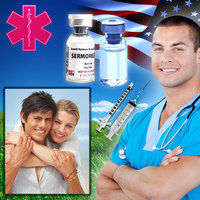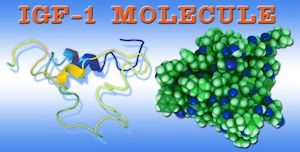Introduction to Testosterone Deficiency Syndrome
Testosterone Deficiency Syndrome (TDS), also known as hypogonadism, is a clinical condition characterized by a deficiency in serum testosterone levels, which can significantly impact the health and well-being of American men. As a critical hormone, testosterone plays a pivotal role in maintaining muscle mass, bone density, red blood cell production, and sexual function. When levels drop below normal, men may experience a range of symptoms that can affect their quality of life.
Symptoms and Diagnosis of TDS
Men with TDS often report a variety of symptoms that can be both physical and psychological. These may include reduced libido, erectile dysfunction, fatigue, decreased muscle mass, increased body fat, mood disturbances, and cognitive decline. Diagnosis of TDS typically involves a thorough medical history, physical examination, and blood tests to measure testosterone levels. It is essential for men experiencing these symptoms to consult with a healthcare provider to determine if TDS is the underlying cause.
Impact on Physical Health
The physical ramifications of TDS are profound and multifaceted. A decline in muscle mass and strength can lead to reduced physical performance and an increased risk of falls and fractures, particularly in older men. Bone density may also be affected, predisposing individuals to osteoporosis. Furthermore, TDS can contribute to an increase in visceral fat, which is associated with metabolic syndrome, a cluster of conditions that heighten the risk of heart disease, stroke, and type 2 diabetes.
Psychological and Emotional Effects
Beyond the physical, TDS can have significant psychological and emotional impacts. Men may experience depression, irritability, and a general sense of malaise. The cognitive effects of low testosterone can manifest as difficulties with memory and concentration, which can be particularly distressing and affect daily functioning. Addressing these psychological aspects is crucial, as they can compound the overall burden of the syndrome.
Sexual Health and Relationship Dynamics
One of the most immediate and noticeable effects of TDS is on sexual health. Reduced libido and erectile dysfunction can strain intimate relationships and lead to decreased satisfaction and self-esteem. Open communication with partners and seeking appropriate medical intervention can help mitigate these effects and improve relationship dynamics.
Treatment Options and Management
Fortunately, TDS is a treatable condition. Treatment typically involves testosterone replacement therapy (TRT), which can be administered through various methods such as injections, gels, patches, or pellets. TRT can help alleviate many of the symptoms associated with TDS and improve overall health. However, it is important for men to work closely with their healthcare providers to monitor treatment and manage any potential side effects.
Lifestyle Interventions
In addition to medical treatment, lifestyle interventions can play a significant role in managing TDS. Regular exercise, particularly resistance training, can help maintain muscle mass and improve mood. A balanced diet rich in nutrients can support overall health and potentially aid in the management of TDS. Adequate sleep and stress management are also crucial components of a comprehensive approach to dealing with the syndrome.
The Importance of Awareness and Early Intervention
Raising awareness about TDS among American men is essential for early detection and intervention. Many men may not recognize the symptoms or may attribute them to normal aging, delaying necessary treatment. Education and proactive health screenings can empower men to take control of their health and seek timely medical advice.
Conclusion
Testosterone Deficiency Syndrome is a significant health concern that can impact the physical, psychological, and sexual well-being of American men. Understanding the symptoms, seeking early diagnosis, and exploring treatment options are crucial steps in managing TDS. By addressing this condition head-on, men can improve their quality of life and maintain their health and vitality into older age.
Contact Us For A Fast And Professional Response

- Understanding Testosterone Deficiency: Symptoms, Diagnosis, and Treatment for American Men [Last Updated On: March 1st, 2025] [Originally Added On: March 1st, 2025]
- Testosterone Deficiency Impact on Muscle Mass in American Men: Diagnosis and Treatment [Last Updated On: March 17th, 2025] [Originally Added On: March 17th, 2025]
- Environmental Toxins Linked to Testosterone Deficiency in American Males [Last Updated On: March 17th, 2025] [Originally Added On: March 17th, 2025]
- Alcohol's Impact on Testosterone and TDS in American Males: A Comprehensive Analysis [Last Updated On: March 18th, 2025] [Originally Added On: March 18th, 2025]
- Testosterone Deficiency Syndrome: Symptoms, Diagnosis, and Management Strategies for American Men [Last Updated On: March 18th, 2025] [Originally Added On: March 18th, 2025]
- Testosterone Deficiency Syndrome: Impact on Energy and Treatment Options for American Men [Last Updated On: March 18th, 2025] [Originally Added On: March 18th, 2025]
- Stress-Induced Testosterone Deficiency in American Males: Causes, Effects, and Management [Last Updated On: March 19th, 2025] [Originally Added On: March 19th, 2025]
- Smoking's Impact on Testosterone Deficiency in American Males: Mechanisms and Mitigation [Last Updated On: March 20th, 2025] [Originally Added On: March 20th, 2025]
- Testosterone Deficiency Syndrome: Understanding and Managing with Hormone Therapy [Last Updated On: March 20th, 2025] [Originally Added On: March 20th, 2025]
- Testosterone Deficiency in Men: Symptoms, Prostate Health, and Treatment Options [Last Updated On: March 20th, 2025] [Originally Added On: March 20th, 2025]
- Testosterone Deficiency in American Men: Impacts on Mood and Treatment Options [Last Updated On: March 20th, 2025] [Originally Added On: March 20th, 2025]
- Weight Training Benefits for Men with Testosterone Deficiency Syndrome [Last Updated On: March 21st, 2025] [Originally Added On: March 21st, 2025]
- Chronic Illness Impact on Testosterone Levels in American Males: Management Strategies [Last Updated On: March 22nd, 2025] [Originally Added On: March 22nd, 2025]
- Testosterone Check-ups Crucial for American Males to Combat Deficiency Syndrome [Last Updated On: March 22nd, 2025] [Originally Added On: March 22nd, 2025]
- Testosterone Deficiency and Sleep Apnea: A Bidirectional Health Challenge for American Males [Last Updated On: March 22nd, 2025] [Originally Added On: March 22nd, 2025]
- Vitamin D's Role in Managing Testosterone Deficiency in American Males [Last Updated On: March 23rd, 2025] [Originally Added On: March 23rd, 2025]
- Testosterone Deficiency and Joint Health: Insights for American Males [Last Updated On: March 23rd, 2025] [Originally Added On: March 23rd, 2025]
- Magnesium's Role in Managing Testosterone Deficiency Syndrome in American Males [Last Updated On: March 23rd, 2025] [Originally Added On: March 23rd, 2025]
- Testosterone Deficiency Syndrome and Immune Function in American Men: A Comprehensive Overview [Last Updated On: March 23rd, 2025] [Originally Added On: March 23rd, 2025]
- Testosterone Deficiency Impacts Body Composition in American Males: Muscle, Fat, Bone [Last Updated On: March 24th, 2025] [Originally Added On: March 24th, 2025]
- Testosterone Deficiency Syndrome: Impacts on Skin Health and Management Strategies for American Men [Last Updated On: March 24th, 2025] [Originally Added On: March 24th, 2025]
- Soy Consumption and Testosterone Levels in American Males with TDS: A Complex Relationship [Last Updated On: March 24th, 2025] [Originally Added On: March 24th, 2025]
- Testosterone Deficiency Syndrome: Impacts and Management in American Male Athletes [Last Updated On: March 24th, 2025] [Originally Added On: March 24th, 2025]
- Shift Work's Impact on Testosterone Levels and Deficiency Syndrome in American Males [Last Updated On: March 24th, 2025] [Originally Added On: March 24th, 2025]
- Zinc's Vital Role in Combating Testosterone Deficiency in American Men [Last Updated On: March 24th, 2025] [Originally Added On: March 24th, 2025]
- Testosterone Deficiency Linked to Dental Health Issues in American Males [Last Updated On: March 24th, 2025] [Originally Added On: March 24th, 2025]
- Testosterone Deficiency in American Men: Impacts on Vision and Eye Health [Last Updated On: March 24th, 2025] [Originally Added On: March 24th, 2025]
- Testosterone Deficiency Syndrome: Impact on Cognitive Function in American Men [Last Updated On: March 25th, 2025] [Originally Added On: March 25th, 2025]
- Plasticizers' Impact on Testosterone Levels and TDS in American Men: A Review [Last Updated On: March 25th, 2025] [Originally Added On: March 25th, 2025]
- Testosterone Deficiency and Depression: A Critical Link in American Men's Health [Last Updated On: March 25th, 2025] [Originally Added On: March 25th, 2025]
- Omega-3 Fatty Acids: A Natural Approach to Managing Testosterone Deficiency in Men [Last Updated On: March 25th, 2025] [Originally Added On: March 25th, 2025]
- Testosterone Deficiency and Hair Loss: Understanding and Managing in American Men [Last Updated On: March 25th, 2025] [Originally Added On: March 25th, 2025]
- Pesticide Exposure Linked to Low Testosterone in American Men: Health Risks and Mitigation [Last Updated On: March 25th, 2025] [Originally Added On: March 25th, 2025]
- Air Pollution's Impact on Testosterone Levels in American Males: A Growing Concern [Last Updated On: March 26th, 2025] [Originally Added On: March 26th, 2025]
- Testosterone Deficiency Syndrome and Its Link to Hearing Loss in American Males [Last Updated On: March 26th, 2025] [Originally Added On: March 26th, 2025]
- Testosterone Deficiency and Anemia: Impacts and Management for American Males [Last Updated On: March 26th, 2025] [Originally Added On: March 26th, 2025]
- Testosterone Deficiency in American Males: Impacts on Memory and Cognitive Health [Last Updated On: March 26th, 2025] [Originally Added On: March 26th, 2025]
- Fenugreek: A Natural Solution for Testosterone Deficiency Syndrome in American Males [Last Updated On: March 26th, 2025] [Originally Added On: March 26th, 2025]
- Blue Light Exposure Linked to Testosterone Deficiency in American Men: Mitigation Strategies [Last Updated On: March 26th, 2025] [Originally Added On: March 26th, 2025]
- Chronic Stress and Testosterone Deficiency Syndrome in American Males: Impacts and Management [Last Updated On: March 26th, 2025] [Originally Added On: March 26th, 2025]
- Diet Soda Consumption Linked to Lower Testosterone Levels in American Men [Last Updated On: March 26th, 2025] [Originally Added On: March 26th, 2025]
- Testosterone Deficiency and Thyroid Dysfunction: Interconnected Health Issues in American Males [Last Updated On: March 26th, 2025] [Originally Added On: March 26th, 2025]
- Boron Supplementation: A Natural Approach to Managing Testosterone Deficiency in American Males [Last Updated On: March 27th, 2025] [Originally Added On: March 27th, 2025]
- Ashwagandha's Potential in Boosting Testosterone for American Males with TDS [Last Updated On: March 27th, 2025] [Originally Added On: March 27th, 2025]
- Testosterone Deficiency in American Men: Impacts, Diagnosis, and Treatment Options [Last Updated On: March 27th, 2025] [Originally Added On: March 27th, 2025]
- High-Fat Diets and Testosterone Levels: Impacts and Dietary Recommendations for American Males [Last Updated On: March 27th, 2025] [Originally Added On: March 27th, 2025]
- Testosterone Deficiency and Liver Health in U.S. Males: Impacts and Management Strategies [Last Updated On: March 28th, 2025] [Originally Added On: March 28th, 2025]
- TDS and Gallbladder Disease: Insights, Risks, and Management Strategies for American Males [Last Updated On: March 28th, 2025] [Originally Added On: March 28th, 2025]
- Testosterone Deficiency Syndrome: Impacts on Kidney Function and Management Strategies [Last Updated On: March 29th, 2025] [Originally Added On: March 29th, 2025]
- Testosterone Deficiency Syndrome: Impacts on Pancreatic Health and Cancer Risk in Men [Last Updated On: March 30th, 2025] [Originally Added On: March 30th, 2025]
- Heavy Metal Exposure and Its Impact on Testosterone Levels in American Men [Last Updated On: March 30th, 2025] [Originally Added On: March 30th, 2025]
- EMF Exposure and Testosterone Levels: Implications for TDS in American Males [Last Updated On: March 31st, 2025] [Originally Added On: March 31st, 2025]
- Tribulus Terrestris: A Promising Herbal Aid for Testosterone Deficiency in American Males [Last Updated On: April 1st, 2025] [Originally Added On: April 1st, 2025]
- Testosterone Deficiency Syndrome: Adrenal Health's Role and Management Strategies [Last Updated On: April 2nd, 2025] [Originally Added On: April 2nd, 2025]
- Testosterone Deficiency Syndrome: Impact, Diagnosis, and Management in American Men [Last Updated On: April 3rd, 2025] [Originally Added On: April 3rd, 2025]
- Noise Pollution Linked to Testosterone Deficiency in American Males: A Growing Concern [Last Updated On: April 5th, 2025] [Originally Added On: April 5th, 2025]
- Fluoride Exposure and Its Impact on Testosterone Levels in American Men [Last Updated On: April 6th, 2025] [Originally Added On: April 6th, 2025]
- Testosterone Deficiency Syndrome: Impacts on Hypothalamic Function and Management Strategies [Last Updated On: April 8th, 2025] [Originally Added On: April 8th, 2025]
- Testosterone Deficiency Syndrome: Impacts, Diagnosis, and Treatment in American Males [Last Updated On: April 10th, 2025] [Originally Added On: April 10th, 2025]
- DHEA Supplementation: A Promising Treatment for Testosterone Deficiency Syndrome in American Males [Last Updated On: April 10th, 2025] [Originally Added On: April 10th, 2025]
- BPA Exposure Linked to Lower Testosterone and TDS in American Men: A Review [Last Updated On: April 10th, 2025] [Originally Added On: April 10th, 2025]
- Ginseng's Potential in Managing Testosterone Deficiency Syndrome: A Comprehensive Overview [Last Updated On: April 10th, 2025] [Originally Added On: April 10th, 2025]
- Testosterone Deficiency and Pineal Gland: Insights for American Males with TDS [Last Updated On: April 10th, 2025] [Originally Added On: April 10th, 2025]
- Testosterone Deficiency Syndrome: Impacts on Urinary Health and Management Strategies [Last Updated On: April 10th, 2025] [Originally Added On: April 10th, 2025]
- Phthalates' Impact on Testosterone and TDS in American Males: An Emerging Concern [Last Updated On: April 11th, 2025] [Originally Added On: April 11th, 2025]
- Testosterone Deficiency Syndrome: Impacts on Gastrointestinal Health in American Males [Last Updated On: April 13th, 2025] [Originally Added On: April 13th, 2025]
- Testosterone Deficiency in American Males: Impacts on Respiratory Health and Management Strategies [Last Updated On: April 13th, 2025] [Originally Added On: April 13th, 2025]
- PFCs Linked to Testosterone Deficiency in American Males: Environmental Health Concerns [Last Updated On: April 14th, 2025] [Originally Added On: April 14th, 2025]
- Phytoestrogens' Impact on Testosterone Levels in American Men with Hypogonadism [Last Updated On: April 17th, 2025] [Originally Added On: April 17th, 2025]
- Testosterone Deficiency Syndrome: Impacts and Management in American Males [Last Updated On: April 17th, 2025] [Originally Added On: April 17th, 2025]
- Cordyceps: A Natural Approach to Managing Testosterone Deficiency Syndrome in Men [Last Updated On: April 17th, 2025] [Originally Added On: April 17th, 2025]
- Testosterone Deficiency Syndrome: Impacts on Metabolic Health and Management Strategies [Last Updated On: April 18th, 2025] [Originally Added On: April 18th, 2025]
- Triclosan Exposure Linked to Testosterone Decline in American Men: TDS Risks [Last Updated On: April 18th, 2025] [Originally Added On: April 18th, 2025]
- Parabens' Role in Testosterone Deficiency Syndrome Among American Males Explored [Last Updated On: April 19th, 2025] [Originally Added On: April 19th, 2025]
- Shilajit: A Natural Remedy for Testosterone Deficiency in American Males [Last Updated On: April 19th, 2025] [Originally Added On: April 19th, 2025]
- Testosterone Deficiency Syndrome: Impact of Endocrine Disruptors on American Males [Last Updated On: April 19th, 2025] [Originally Added On: April 19th, 2025]
- Testosterone Deficiency and Autoimmune Disorders: A Critical Link for American Males [Last Updated On: April 19th, 2025] [Originally Added On: April 19th, 2025]
- Testosterone Deficiency: Impacts on Neurological Health in American Males [Last Updated On: April 19th, 2025] [Originally Added On: April 19th, 2025]
- Testosterone Deficiency: Impacts on Skin, Hair, and Psychological Health in American Men [Last Updated On: April 21st, 2025] [Originally Added On: April 21st, 2025]
- Organophosphate Pesticides Linked to Testosterone Deficiency in American Males [Last Updated On: April 21st, 2025] [Originally Added On: April 21st, 2025]

















